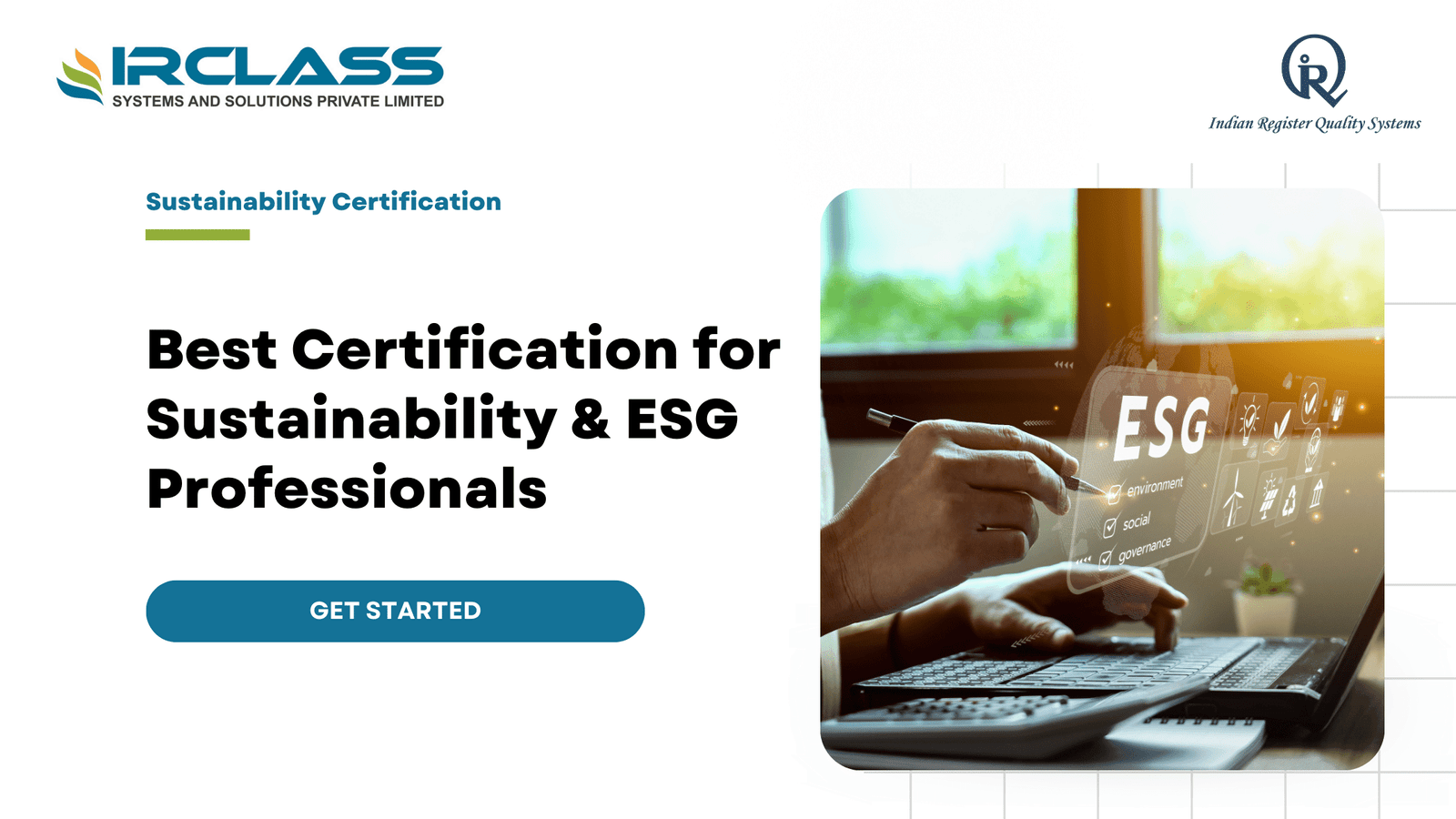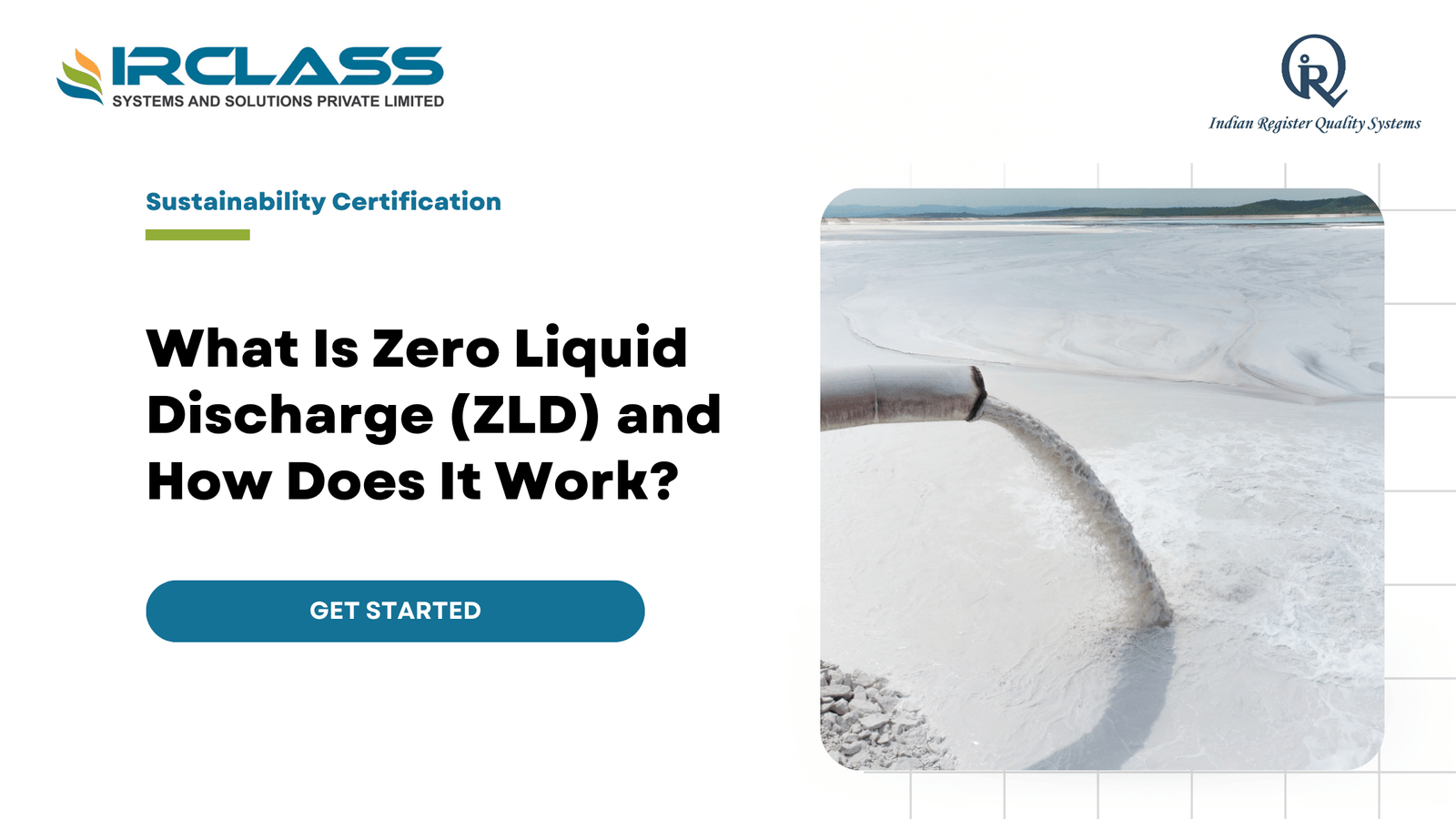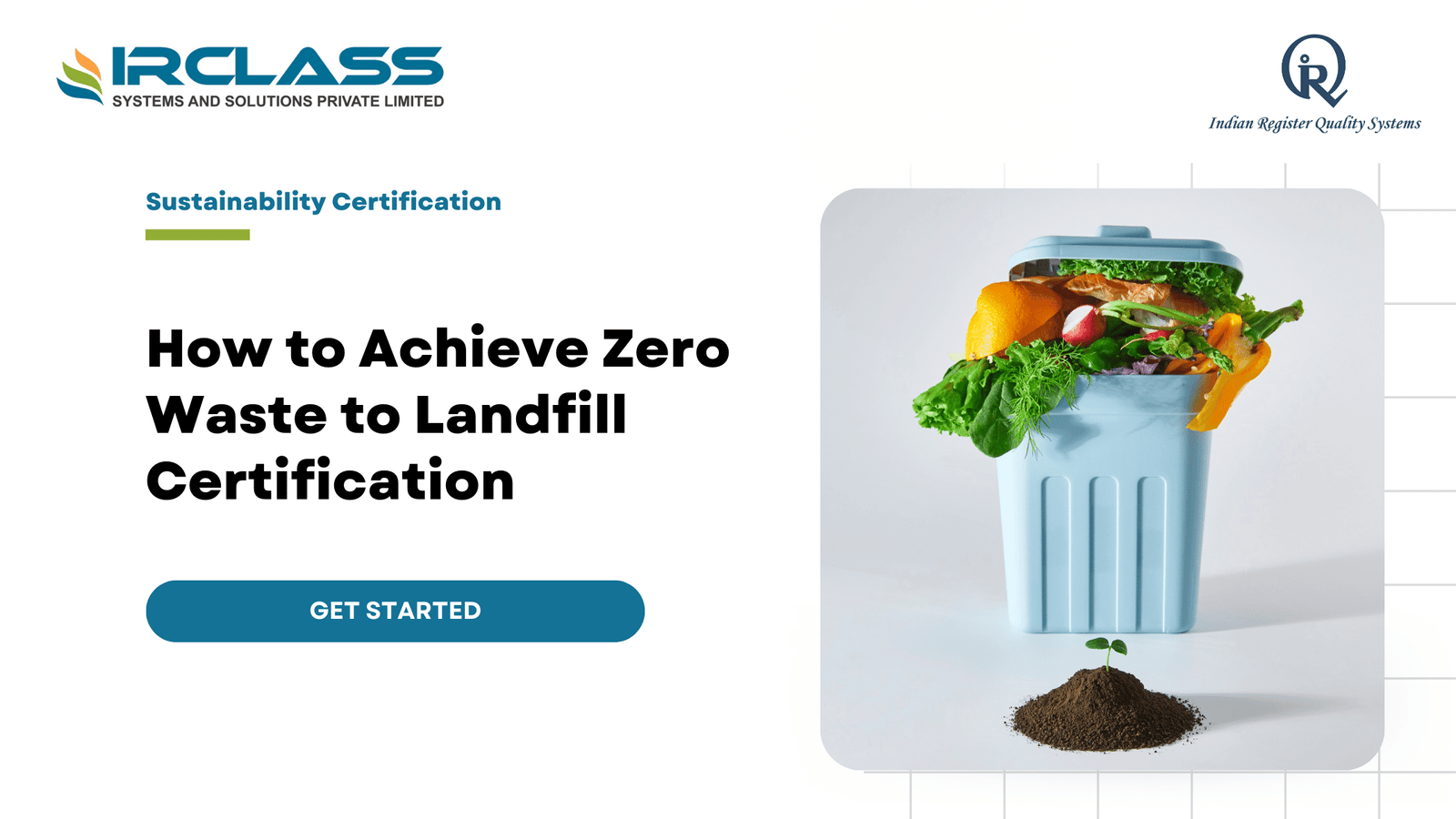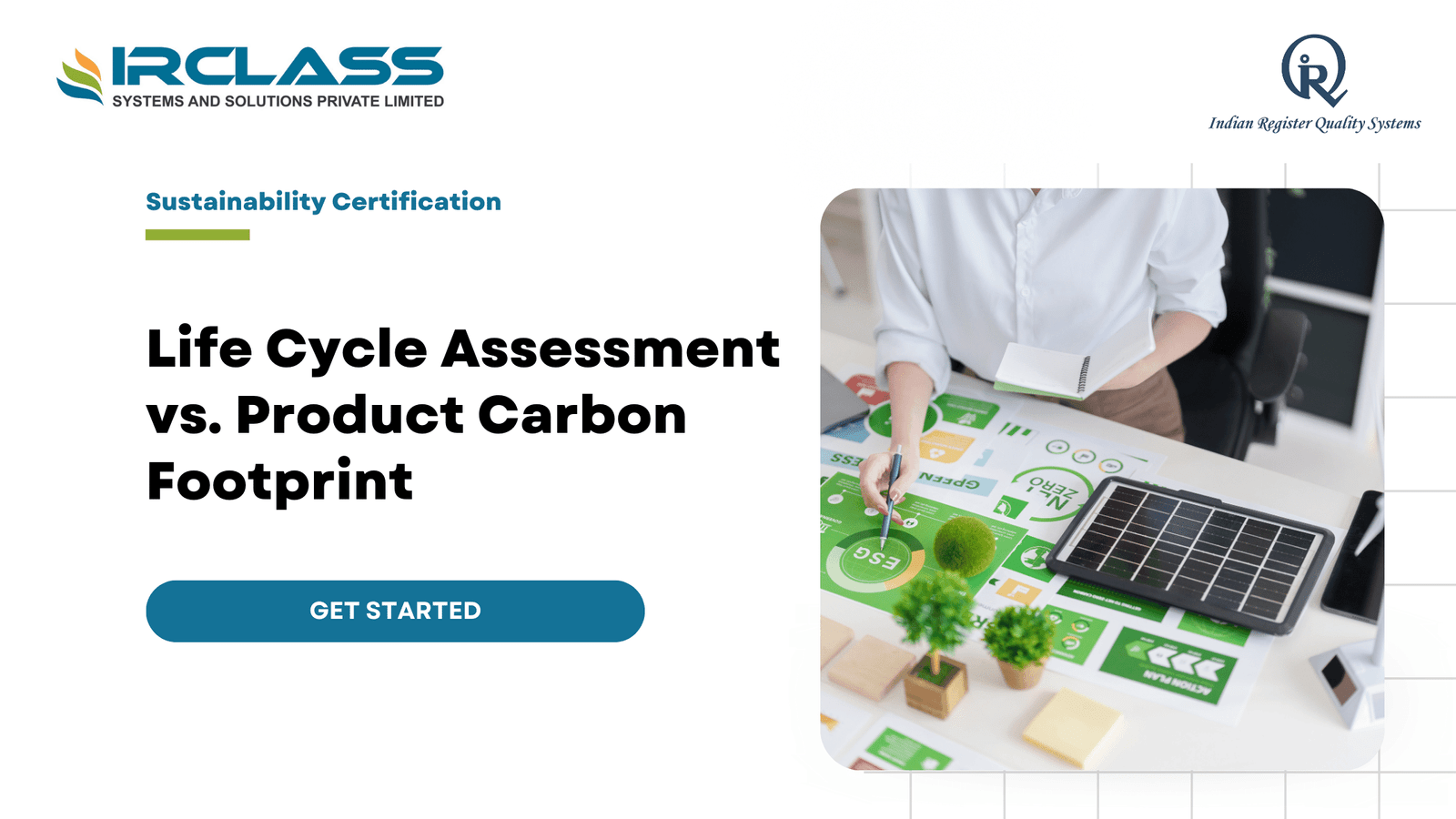Tag: Top sustainability certifications for professionals

What’s the Best Certification for Sustainability & ESG Professionals
Sustainability and ESG are no longer optional. Shareholders, regulators, and consumers want companies to report on their effects on the environment, society, and governance. To meet these demands, businesses need experts who are conversant with ESG frameworks, reporting standards, and compliance. Certifications render these professionals relevant and credible. Sustainability and ESG have many certifications. Some are strategy-based, some are reporting-based, and others are audit-based or risk management-based. The decision to follow one or the other is based on your position, sector, and goals. The relevant certification will unlock the gateway to employment in ESG consulting, compliance, climate risk, and sustainability reporting. Why ESG and Sustainability Certifications Matter Companies need certified professionals because ESG reporting is complex. It involves understanding climate disclosures, sustainability risks, social impact, and governance frameworks. These frameworks differ by region and regulation. Certifications provide structure and help you show that you can handle this complexity. Certifications also build trust. When a company hires someone with a recognized credential, they know this person meets global standards. Whether it’s developing a net-zero strategy or conducting ESG audits, certifications prove your skills. Key Areas Covered by Most ESG Certifications While each certification has its own focus, most of them include: Some programs go deeper into one area. If you want to specialize in climate risk or ESG strategy, you need to pick a certification that aligns with that focus. What to Look for in a Good ESG Certification Not all certifications are the same. Some are better suited for entry-level professionals, while others are made for senior leaders. The delivery format, global recognition, and technical depth all matter. If you’re just starting out, look for a foundational course that explains the basics of ESG. If you’re already working in compliance or risk, you need something more technical, with case studies and standards training. If you’re in internal audit, choose a course with ESG assurance modules. You also want a program that updates content regularly. ESG is evolving. What was relevant last year may not meet today’s disclosure requirements. Make sure the certification includes the latest frameworks. Certifications That ESG Professionals Consider There are certifications focused on corporate sustainability, and others that go deeper into ESG investing, disclosure, and assurance. Some are global; some are region-specific. Some are accredited; others are not. Professionals working in listed companies or firms subject to sustainability reporting regulations usually prefer certifications that include frameworks like TCFD, GRI, and the EU CSRD. ISO-based certifications are a better fit for assurance and internal audit roles. These include training in risk-based approaches, sustainability audits, and data validation. Certifications linked to ISO standards are also widely accepted. They follow a globally recognized structure and often include practical audit training. How These Certifications Are Structured Most ESG certifications follow a modular structure. You start with basic concepts like sustainability, governance, and risk. Then you move into reporting frameworks. Finally, you may go through case studies or simulations. Some courses are online and self-paced. Others are classroom-based with live instruction. If you’re working full-time, online options with flexible schedules help. But if you need networking or peer learning, classroom training works better. Some programs include exams. Others require a project or a case study analysis. Choose based on how you prefer to learn and prove your skills. What Companies Expect from ESG-Certified Professionals Today, companies don’t just want general sustainability awareness. They want you to know specific frameworks. They want people who can read ESG data, build a report, and review it for errors. In an internal audit, they want people who can validate disclosures. In compliance, they want people who can map ESG risks to regulatory guidelines. Some roles demand sector-specific ESG knowledge. For example, energy companies want professionals trained in Scope 3 emissions reporting. Financial institutions want people who understand climate risk in investment portfolios. A good ESG certification prepares you for these specific demands. The Global Shift Toward Mandatory ESG Reporting Many countries now require ESG disclosures. The EU has already enforced the Corporate Sustainability Reporting Directive (CSRD). India has mandated Business Responsibility and Sustainability Reporting (BRSR) for top-listed companies. The U.S. is moving toward climate-related disclosures. Other countries are catching up fast. This means that additional companies must find ways to identify and disclose ESG threats. Certified professionals are in demand because they bring clarity into the reporting process. They know what to disclose and how to present it to the regulators and investors. How to Choose the Right Certification for You Selecting the proper certification is a matter of your objectives. To work in strategy, choose a course that teaches ESG leadership. If you want to audit ESG reports, consider an assurance-oriented program. If you are in operations, seek training that connects ESG to business operations. Ask yourself: Don’t just look at the brand name. Look at the syllabus. Look at the trainer profiles. See who recognizes the certification. Talk to people who’ve taken it. How ESG Certifications Help You Stay Ahead The ESG field is still new, and it’s growing fast. Companies are building teams for ESG strategy, compliance, risk, and audit. They want people with proof of skills. ESG certifications help you stand out in job applications. They also help you make better decisions if you’re already in a leadership role. Certifications show you’re serious about the field. They show you understand sustainability beyond buzzwords. They give you frameworks, tools, and language to work with legal teams, auditors, and investors. They also help you build confidence. When you’re asked to lead a sustainability project or respond to a regulatory inquiry, you know what to do. You don’t guess. Conclusion The most useful certification is the one that can help you address the actual ESG issues. You may be involved in climate disclosures, ESG audits, or sustainable procurement, and you need training that is practical and up to date. The certifications provided by IRQS are internationally accepted, ISO-aligned, and practical in real-life ESG application. When you are serious about a career in sustainability, then
Search
Useful Links
Recent Posts

What Is Zero Liquid Discharge (ZLD) and How Does It Work?

How to Achieve Zero Waste to Landfill Certification: Step-by-Step Guide



